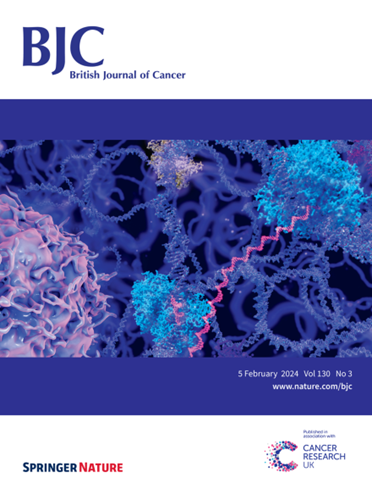Real-world evidence for pembrolizumab in non-small cell lung cancer: a nationwide cohort study
IF 6.4
1区 医学
Q1 ONCOLOGY
引用次数: 0
Abstract
Based on favourable results from clinical trials, immune checkpoint inhibitors (ICI) have become the standard first line (1 L) systemic anticancer treatment (SACT) for advanced stage non-small cell lung cancer (NSCLC) without targetable mutations. We evaluate whether these results are generalizable to everyday clinical practice and compare overall survival (OS) of patients treated with ICI to a historical cohort of patients treated with chemotherapy and results from clinical trials. Our study comprised all advanced NSCLC patients initiating SACT in 2012–21 in Norway. Clinical characteristics and treatment information was retrieved from Norwegian Health Registries. Survival for all 8416 advanced NSCLC patients treated with SACT increased concurrently with the gradual implementation of ICIs. Median OS of patients treated with 1 L pembrolizumab after 2017 was better (mono-/combination therapy: 13.8/12.8 months) than for patients treated with chemotherapy before 2017 (8.0 months). Although median OS for patients treated with pembrolizumab was lower in clinical practice than clinical trials (Keynote-024/189: 26.3/22.0 months), the survival benefit relative to chemotherapy was similar. Our nationwide study demonstrated a survival benefit over conventional chemotherapy of a similar magnitude as observed in clinical trials and confirms the effectiveness of pembrolizumab in routine clinical practice.

pembrolizumab治疗非小细胞肺癌的现实证据:一项全国性队列研究。
背景:基于临床试验的良好结果,免疫检查点抑制剂(ICI)已成为无靶向突变的晚期非小细胞肺癌(NSCLC)的标准一线(1 L)全身抗癌治疗(SACT)。我们评估了这些结果是否适用于日常临床实践,并将接受 ICI 治疗的患者的总生存期(OS)与接受化疗的历史患者队列和临床试验结果进行了比较:研究对象包括2012-21年间在挪威接受SACT治疗的所有晚期NSCLC患者。临床特征和治疗信息均来自挪威健康登记处:所有8416名接受SACT治疗的晚期NSCLC患者的生存率随着ICIs的逐步应用而增加。2017年后接受1 L pembrolizumab治疗的患者的中位OS(单药/联合治疗:13.8/12.8个月)优于2017年前接受化疗的患者(8.0个月)。尽管在临床实践中,接受pembrolizumab治疗的患者的中位OS低于临床试验(Keynote-024/189:26.3/22.0个月),但相对于化疗的生存获益是相似的:我们的全国性研究表明,与临床试验中观察到的传统化疗相比,pembrolizumab的生存获益程度相似,这也证实了pembrolizumab在常规临床实践中的有效性。
本文章由计算机程序翻译,如有差异,请以英文原文为准。
求助全文
约1分钟内获得全文
求助全文
来源期刊

British Journal of Cancer
医学-肿瘤学
CiteScore
15.10
自引率
1.10%
发文量
383
审稿时长
6 months
期刊介绍:
The British Journal of Cancer is one of the most-cited general cancer journals, publishing significant advances in translational and clinical cancer research.It also publishes high-quality reviews and thought-provoking comment on all aspects of cancer prevention,diagnosis and treatment.
 求助内容:
求助内容: 应助结果提醒方式:
应助结果提醒方式:


